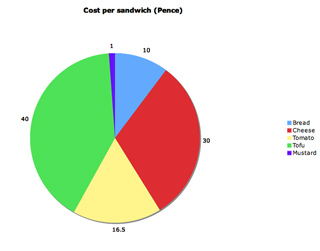
Working on chapter three, I have been talking a lot about different kinds of equilibria, and what implications they have for environmental policy. Uncertainty about which sort we are dealing with – as well as the critical points of transition between them – make it exceptionally difficult to consider global environmental problems in cost-benefit terms.
Stable equilibria
One common view of the characteristics of natural equilibria is that they are both stable and singular. An example is a marble at the bottom of a bowl. If you push it a bit in one direction or another, it will return to where it was. Many biological systems seem to be like this, at least within limits. Think about the acid-base conjugate systems that help control the pH of blood, or about an ecosystem where a modest proportion of one species gets eliminated. Provided you like the way things are at the moment, more or less, such stable equilibria are a desirable environmental characteristic. They allow you to effect moderate changes in what is going on, without needing to worry too much about profoundly unbalancing your surroundings.
Unstable equilibria
Of course, such systems can be pushed beyond their bounds. Here, think about a vending machine being tipped. Up to a certain critical point, it will totter back to its original position when you release it. Beyond that point, it will continue to fall over, even if the original force being exerted upon it is discontinued. Both the vertical and horizontal positions of the vending machine are stable equilibria, though we would probably prefer the former to the latter. For a biological example, you might think of a forested hillside. Take a few trees, wait a few years, and the situation will probably be much like when you began. If you cut down enough trees to lose all the topsoil to erosion, however, you might come back in many decades and still find an ecosystem radically different from the one you started off with.
Multiple equilibria
The last important consideration are the number of systems where there are a very great many equilibrium options. One patch of ocean could contain a complex ecosystem, with many different trophic levels and a complex combination of energy pathways. Alternatively, it could feature a relative small number of species. The idea that we can turn the first into the second, through over-fishing, and then expect things to return to how they were at the outset demonstrates some of the fallacious thinking about equilibria in environmental planning.
The trouble with the climate is that it isn’t like a vending machine, in that you can feel the effect your pushing is having on it and pretty clearly anticipate what is going to happen next. Firstly, that is because there are internal balances that make things trickier. It is as though there are all sorts of pendulums and gyroscopes inside the machine, making its movements in response to any particular push unpredictable. Secondly, we are not the only thing pushing on the machine. There are other exogenous properties like solar and orbital variations that may be acting in addition to our exertions, in opposition to them, or simply in parallel. Those forces are likely to change in magnitude both over the course or regular cycles and progressively over the course of time.
How, then, do we decide how much pushing the machine can take? This is the same question posed, in more economic terms, when we speculate about damage curves.


